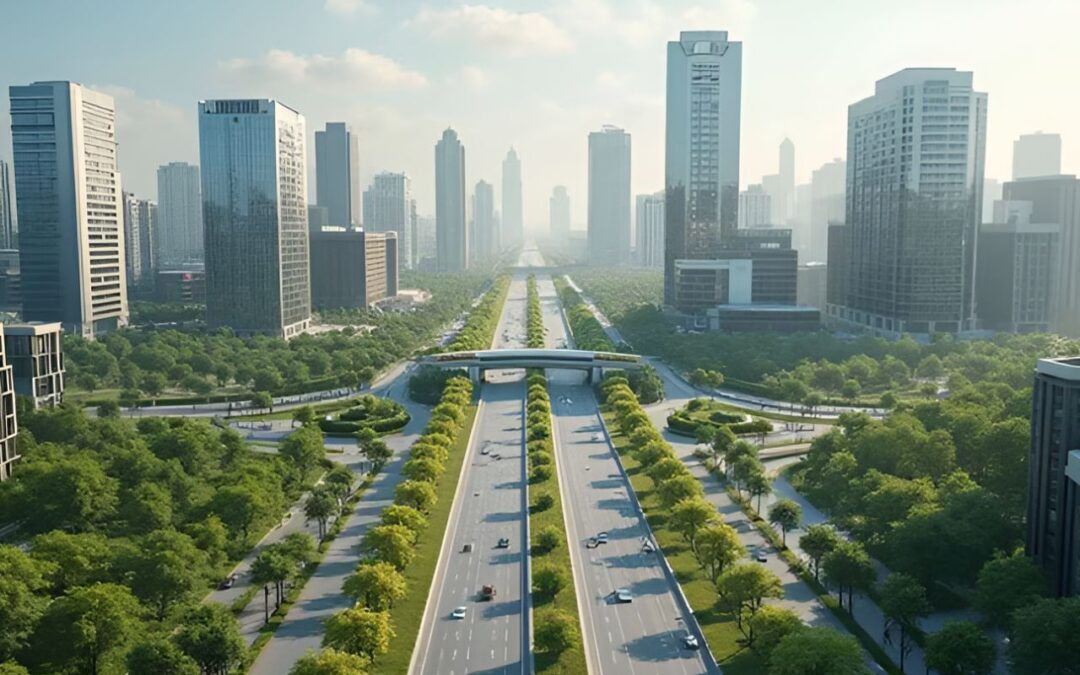Synopsis- The Karnataka government has taken it upon itself to convert 5,800 acres land between Dabaspet to Doddaballapur into an investment hub, through an initiative known as KWIN City. The project comes with improved connectivity, jobs in tech and health. It is a planned, sustainable urban development that has led to rising land prices and created housing demand. Developers and investors are already acquiring land aggressively, expecting new residential and commercial lifestyle infrastructure to push growth. KWIN City is about to change the dynamics of Bengaluru’s North real estate in the next ten years.
The Karnataka government’s ambitious KWIN City initiative has emerged as a strong driver of a huge real estate boom along Bengaluru’s northern periphery. Stretching over 5,800 acres between Dabaspet and Doddaballapur, the Knowledge-Wellbeing-Innovation (KWIN) City has already started turning the area into a high-growth investment destination.
- KWIN City is being developed using a Public-Private Partnership (PPP) approach.
- The first 2,000 acres of development are planned to be completed within 3 years.
- The city’s methodical development approach has generated positive market signals.
- It has attracted interest from domestic real estate developers and global academic institutions.
- KWIN City aims to attract the top 500 global universities using UGC regulations.
- This move is expected to boost high-skilled talent inflow and create strong demand for student housing.
- Leading real estate companies are aligning with the city’s education, innovation, and healthcare ecosystem in their long-term plans.
- Planned strategic investments in rail and road connectivity are accelerating the region’s transformation.
- Developers and investors see the project as Bengaluru’s next economic node, not just a growth zone.
- The city promises a liveable, economically vibrant, and internationally connected urban ecosystem.
- Focused on being eco-friendly and sustainable in its master plan design.
KWIN City is creating a domino effect on land values, infrastructure build-out and housing demand in the surrounding areas through improved connectivity and job creation. Let’s explore how this is possible.
1. Connectivity Drives Land Value
Among the strongest drivers of increasing property demand is infrastructure. KWIN City is going to have three major national highways flowing through it, and is near the Satellite Town Ring Road (STRR), which, for now, is only partially operational, running between Dabaspet and Hoskote. To add to this, a future monorail with a station every 800 meters as part of the planned smart transit system is also on the to-do list.
2. Residential Real Estate Development in KWIN’s Shadow
- Developers are scrambling to grab land plots in Doddaballapur, Nelamangala, and areas around them to develop plotted developments, mid-segment apartments, and high-end villas.
- Land prices have gone up as much as 20-30% certain areas and is expected rise another 25% in the coming five years. Since the project was launched, plotted developments have had the highest hike.
3. Job Generation Spurs Housing Demand
- The government estimates that the city to create more than 100,000 direct employment opportunities in its Research, Health-Tech, Biotech, and Skill Development clusters. This job engine is having a ripple effect:
- Over multiple colleges and research institutions have signed up to set up campuses
- Healthcare and innovation parks will be launched by 2026
- New industrial tech parks will increase mid-income rental demand
- This has created growing demand for 1BHK and 2BHK flats for young professionals and students.
4. Demand-Supply Momentum Spurs Investment Spurt
Realty participants like Prestige, Sobha, and Puravankara have started aggregating land around KWIN. Investors are also accessing micro-markets that are on the fringe but get the advantages of future transit connectivity.
Also read: Pune Metro Phase 2 Is Boosting Connectivity and Making Property Prices Explode; Here’s How
5. Commercial Bubble to Follow Residential Demand
With housing growth comes commercial development. Office parks, logistics centers, retail plazas, and hospitality developments are likely to proliferate in a hurry by 2026.
6. Sustainability and Lifestyle Enhance Long-Term Demand
- The project planning incorporates:
- 40% space for lakes, gardens, and open areas
- Decentralized solar power and rainwater collection
- Walkable integrated zones, education campuses, and hospitals
- These aspects are attracting environment-friendly consumers and facilitating lifestyle demand, particularly in the case of NRIs and HNIs targeting second homes or investment homes on a long-term basis.
Conclusion
KWIN City is not just another Special Economic Zone (SEZ) or tech park being added to the complex true state of Bengaluru’s real estate story. It is transforming the definition of creating an integrated, sustainable, and innovation-driven city. The effect of this unique methodology is the changing real estate values, interest, and development in surrounding areas like Doddaballapur, Dabaspet, and STRR-aligned zones. This is merely the tip of the iceberg. With metro connectivity, employment clusters, and residential townships beginning to shape up, this area would witness a threefold spike in real estate activity in the coming decade. For investors, early birds, and end-users, the land surrounding KWIN City is quickly emerging as one of India’s most sought-after real estate bets.
Written by Adithya Menon





